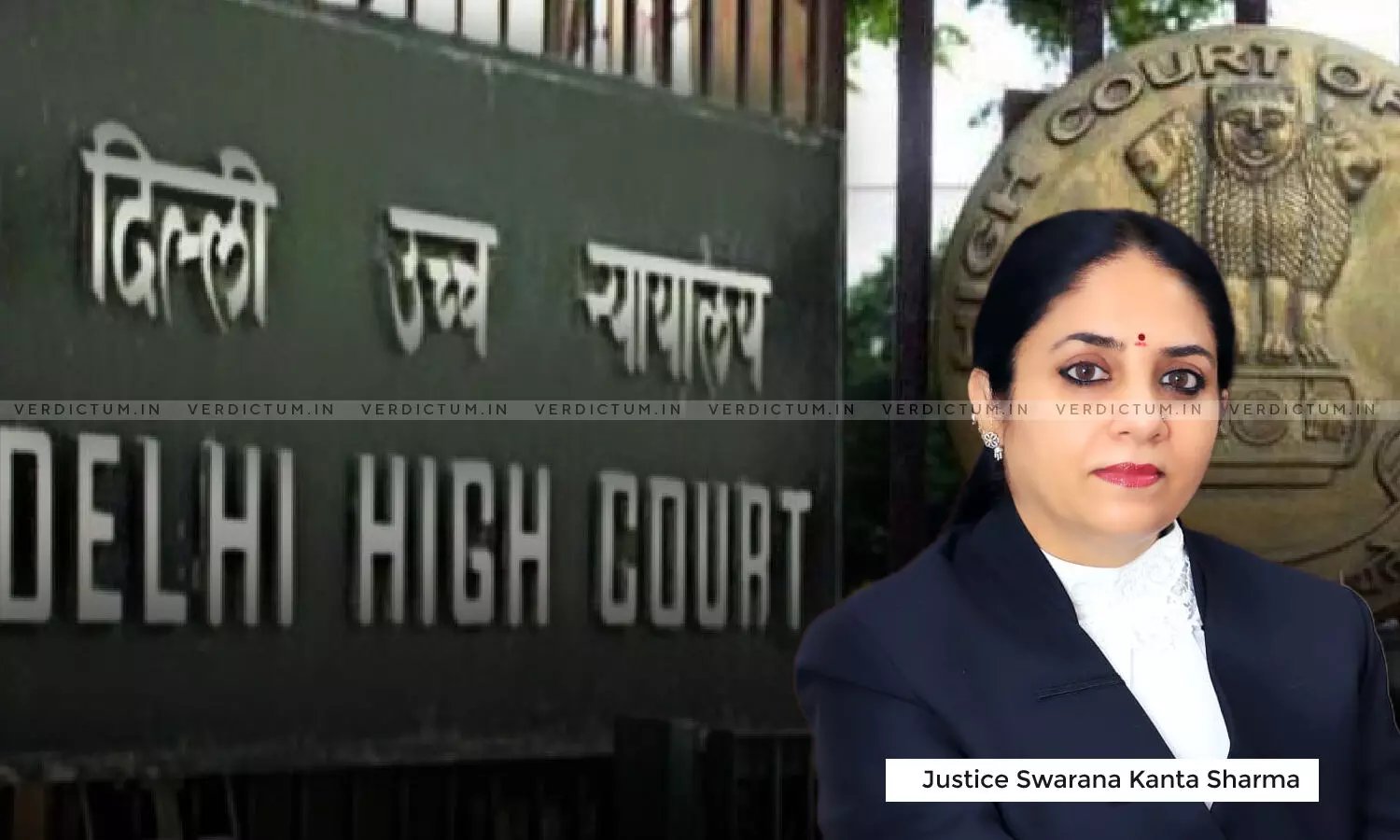
Justice Swarana Kanta Sharma, Delhi High Court
Technical Delays Or Procedural Lapses No Bar To Interim Maintenance For Wife & Child: Delhi High Court
 |
|The husband contested the ₹50,000 maintenance while the wife claimed he earned ₹4 lakh monthly.
The Delhi High Court has emphasized that technical or procedural shortcomings cannot be allowed to obstruct the objective of granting interim maintenance under Section 125 of the Code of Criminal Procedure (CrPC), particularly when it concerns a wife and minor child who are unable to sustain themselves independently.
A Bench of Justice Swarana Kanta Sharma noted that the provision for interim maintenance is specifically designed to offer prompt and essential financial support to dependent spouses and children. The Court held, “While the right to fair opportunity and adherence to natural justice are essential, it is equally true that technical delays or procedural lapses cannot defeat the very purpose of the provision.”
Advocate Sumeet Beniwal appeared for the Petitioner and Advocate Dhirendra Singh appeared for the Respondent.
The case before the Court involved a challenge by a husband to a Family Court’s order which directed him to pay ₹50,000 per month as interim maintenance to his wife and their minor child. The husband contended that this order was unjust, arguing that it had been issued without a proper evaluation of the facts, and was based solely on the wife's income affidavit and claims, without affording him an adequate opportunity to present his defense or counter the allegations.
The husband further argued that the awarded amount was unrealistically high and beyond his financial capability, particularly given his alleged unemployment and the fact that he was financially dependent on his mother, who is battling stage-three brain tumor.
In her affidavit, the wife claimed that the husband had a monthly income exceeding ₹4 lakh, primarily from rental sources, and was financially sound. The husband, however, denied this claim, but the Court pointed out that his bare denial lacked evidentiary support, as he had failed to submit income tax returns, bank statements, or any other financial documents to validate his assertion of financial hardship.
The Court also clarified that at the interim maintenance stage, there is no requirement for a detailed inquiry or trial regarding the parties’ income. Instead, the assessment must be made on a prima facie basis, relying on the pleadings, affidavits, and available documents.
The Court observed that the Family Court had taken a balanced and reasonable approach in weighing the circumstances of both parties and arrived at an interim maintenance amount that did not appear excessive or disproportionate.
The Court further emphasized the fact that the minor child, aged around five years, was in the custody and care of the wife, and that she alone was bearing the child’s expenses, including food, clothing, healthcare, education, and other essential needs.
The Court added, “The revisionist, as the biological father, cannot abdicate his legal and moral responsibility to maintain his minor child. The argument advanced on behalf of the revisionist that the respondent herself is qualified and capable of earning does not absolve the husband from his statutory duty under Section 125 Cr.P.C., particularly in respect of the child.”
Accordingly, the High Court refused to interfere with the impugned decision and dismissed the revision petition along with all pending applications.
Cause Title: Sagar Phogat v. Priyanka, [2025:DHC:6350]
Appearance:
Petitioner: Advocates Sumeet Beniwal and Tushar Rohmetra
Respondent: Advocates Dhirendra Singh and Navdeep Mavi